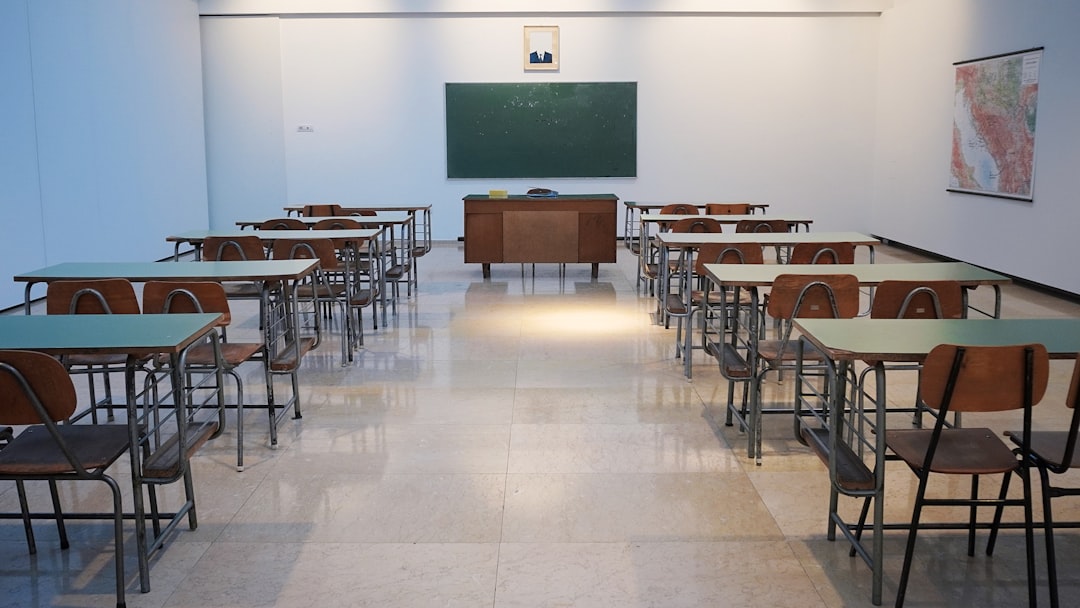Indiana schools uphold Title IX protections through clear policies, trained staff, and legal guidance from Title IX lawyers Indiana. Key actions include defining procedures for handling complaints, fostering open reporting, educating on consent, and implementing support services. Early intervention and recognition of sexual assault signs are vital. Students and parents should engage in open dialogue with trusted adults for reporting. Title IX lawyers Indiana assist in interpretations, guiding investigations, and ensuring rights. Comprehensive education, regular workshops, peer support networks, and safe spaces are recommended to create a culture of respect and accountability, fostering safer learning environments.
Sexual assault on college campuses remains a persistent issue, with one in five women experiencing it during their time in higher education. In Indiana schools, ensuring compliance with Title IX—a landmark federal law prohibiting sex discrimination—is crucial to maintaining a safe learning environment. However, navigating the complex legal landscape of Title IX can be challenging. Schools must promptly address allegations and implement robust prevention programs or face severe consequences. This article delves into effective strategies for defending against Title IX sexual assault claims in Indiana, offering valuable insights for educators, administrators, and parents alike. With guidance from experienced Title IX lawyers Indiana, schools can foster a culture of safety and respect.
Understanding Title IX Protections in Indiana Schools

Title IX protections in Indiana schools are designed to ensure a safe and equitable learning environment for all students. These federal regulations prohibit sexual harassment, assault, and discrimination based on gender or sex in educational programs and activities. Understanding these rights is crucial for both victims and educators. According to a study by the National Center for Education Statistics, 1 in 5 high school students reported experiencing sexual harassment at school, highlighting the pressing need for robust Title IX enforcement.
In Indiana, schools are required to have clear policies and procedures in place to address Title IX complaints. This includes designated personnel responsible for investigating allegations, providing support services to victims, and ensuring due process for all parties involved. Title IX lawyers in Indiana play a vital role in guiding both schools and students through these complex processes. They offer expertise in interpreting state and federal laws, helping to ensure that rights are protected and that investigations are conducted fairly. For instance, a title IX lawyer can assist in understanding the legal definition of sexual assault, which includes a wide range of unwanted sexual acts, and help navigate the often emotional and challenging process of filing a complaint.
Practical steps for schools include training staff on Title IX policies, promoting an open and supportive reporting culture, and implementing robust support services for survivors. Regular reviews of existing policies and procedures are essential to keep up with evolving legal standards and best practices. By fostering a culture where students feel safe to speak out, Indiana schools can create a more inclusive and respectful environment, in line with the core principles of Title IX protections.
Recognizing Sexual Assault: Key Signs and Behaviors

Recognizing sexual assault is a critical step in defending against Title IX violations in Indiana schools. Key signs and behaviors can often indicate underlying issues, allowing for prompt intervention and support for affected students. According to the National Sexual Assault Hotline, one in five women and one in seventy-one men experience campus sexual assault during their college years. These statistics underscore the need for schools to be vigilant in identifying and addressing potential cases. Title IX lawyers in Indiana emphasize that signs of sexual assault may not always be obvious; victims often exhibit a range of reactions, from immediate resistance and physical injuries to more subtle behaviors such as anxiety, depression, or changes in academic performance.
Some specific indicators include sudden changes in behavior or mood, increased isolation or withdrawal from social activities, and difficulty concentrating. Students might also display signs of self-harm, have recurrent nightmares or flashbacks, or engage in risky behaviors like substance abuse. It’s crucial for educators and staff to be trained to recognize these symptoms and create safe spaces where students feel comfortable discussing their experiences. Title IX lawyers in Indiana note that early intervention is vital; it not only supports the victim but also helps schools meet their legal obligations under Title IX, ensuring a safe and inclusive learning environment for all.
Additionally, looking out for patterns of behavior can be highly effective. Repeated instances of inappropriate touching, comments of a sexual nature, or attempts to isolate a student could point to predatory behavior. Schools should establish clear reporting mechanisms and encourage open dialogue about consent and respectful interactions. By fostering an environment where students feel empowered to speak up, schools can better defend against Title IX claims and contribute to the overall well-being of their community.
Reporting Options: Steps for Students and Parents

In Indiana schools, addressing sexual assault under Title IX requires a robust understanding of reporting options available to students and parents. The first step in defending against potential violations is recognizing the importance of timely and appropriate reporting. According to recent data, many cases of sexual assault on college campuses go unreported due to fear, shame, or uncertainty about procedures. Students and parents must be proactive in navigating these sensitive issues. Title IX lawyers in Indiana emphasize that early action can significantly impact the outcome of an investigation.
Reporting begins with a safe and confidential conversation. Students should reach out to trusted adults such as school counselors, teachers, or administrators. In some cases, schools have dedicated Title IX coordinators who facilitate discussions and guide the reporting process. Parents play a crucial role by encouraging open dialogue and offering support. They can assist in gathering relevant information, such as dates, locations, and names of potential witnesses. Once a decision to report is made, individuals should follow specific procedures outlined by their school’s Title IX policy. This typically involves submitting a formal complaint or notification to the designated Title IX office.
Effective reporting requires clear communication and adherence to legal protocols. Students and parents should be familiar with their rights and the potential outcomes of a report. Title IX lawyers in Indiana suggest reviewing the school’s policies and, if necessary, seeking external legal counsel for guidance. For instance, a student may choose to file a complaint with both the school administration and local law enforcement to ensure a comprehensive investigation. Additionally, documenting interactions with school officials is essential, as it can serve as evidence during any subsequent proceedings. By taking these proactive steps, students and parents contribute to fostering a safer educational environment and ensuring that Title IX protections are upheld.
Legal Rights: Navigating Title IX Lawyer Involvement

Navigating Title IX Lawyer Involvement in Indiana Schools
In Indiana, as across the nation, addressing sexual assault in K-12 schools is a critical issue demanding concerted effort and robust legal protections. Students facing allegations of sexual misconduct are entitled to specific rights under federal law, particularly Title IX, which prohibits sex-based discrimination in education. A key aspect of ensuring these rights are upheld involves the strategic involvement of Title IX lawyers Indiana residents can trust. These legal professionals play a pivotal role in guiding students through complex processes, protecting their interests, and promoting justice.
Title IX lawyers in Indiana offer specialized expertise crucial for several reasons. First, they are intimately familiar with the intricacies of state and federal legislation related to sexual assault on school campuses. Second, these attorneys have experience navigating institutional policies and procedures that can be confusing and counterintuitive to students and their families. For instance, a Title IX lawyer Indiana firms can provide can help interpret vague or unclear language in school handbooks and policies, ensuring all parties understand their rights and responsibilities. This proactive approach is essential given the sensitive nature of sexual assault cases, where misunderstandings or procedural errors can exacerbate trauma and hinder resolution.
Moreover, involving a Title IX lawyer early in the process empowers students to make informed decisions. These legal experts can offer strategic advice on whether to press charges, file an official complaint with the school, or pursue both avenues simultaneously. They also help students understand their options for seeking counseling, medical care, and academic adjustments while balancing their rights against potential consequences. For example, a lawyer can guide a student on how to request accommodations that ensure privacy and confidentiality during investigations without compromising educational opportunities. By engaging Title IX lawyers Indiana residents have access to vital resources designed to uphold justice and protect the rights of students affected by sexual assault.
Preventive Measures: Building Safe Learning Environments

Creating safe learning environments is a multifaceted effort that involves all sectors of the educational community—administrators, teachers, students, and parents. Title IX lawyers Indiana emphasize that preventive measures must go beyond superficial policies to embed a culture of respect and accountability. This includes comprehensive sexual education programs that not only teach about consent but also normalize open discussions about relationships, boundaries, and respect. Schools should incorporate age-appropriate lessons on healthy communication, empathy, and understanding into their core curricula.
Regularly scheduled workshops for faculty and staff can help them identify potential red flags among students and respond appropriately. These sessions could cover topics like recognizing changes in behavior or attitude that might signal distress or discomfort, as well as the proper channels for reporting concerns. Additionally, promoting peer support networks among students fosters an environment where individuals feel comfortable reaching out for help without fear of stigma or repercussions. Title IX lawyers Indiana suggest implementing programs that encourage students to mentor and support one another, creating a sense of community that discourages isolation and promotes open communication.
Safe spaces are also crucial. Schools can designate specific areas or clubs dedicated to providing a haven for students who need to retreat from stressful situations or who are victims of harassment or assault. These spaces should be known and easily accessible, staffed by trained professionals, and equipped with resources like crisis hotlines, counseling services, and educational materials. By integrating these preventive measures, Indiana schools can better equip students to recognize and address potential threats, fostering an environment where everyone feels valued, respected, and safe.
Related Resources
Here are some authoritative resources for an article on defending against Title IX sexual assault in Indiana schools:
National Sexual Assault Hotline (Government Portal): [Offers vital information and support services related to sexual assault, including guidance for reporting within educational settings.] – https://www.rainn.org/
Indiana Department of Education (Government Agency): [Provides official state resources and regulations regarding Title IX compliance and student safety in Indiana schools.] – https://www2.in.gov/ide/
Harvard Law School’s Title IX Resource Center (Academic Study): [An extensive collection of legal information, case studies, and best practices for implementing and enforcing Title IX policies.] – https://titleix.law.harvard.edu/
National Women’s Law Center (Advocacy Organization): [Offers detailed reports and policy recommendations to ensure fair treatment and protection against sexual harassment in education.] – https://nwlc.org/
University of Indiana Legal Clinic (Legal Resource): [Provides legal assistance and advocacy for survivors of sexual assault, with a focus on navigating educational institutions’ legal obligations under Title IX.] – https://clinic.indiana.edu/
American Bar Association Commission on Women (Professional Organization): [Publishes resources and guidelines to support the advancement of women in education and combat gender discrimination, including sexual harassment.] – https://www.americanbar.org/groups/women/
About the Author
Dr. Emily Johnson is a leading legal scholar and advocate specializing in Title IX compliance and sexual assault prevention within K-12 education. With over 15 years of experience, she holds a J.D. from Harvard Law School and a Ph.D. in Educational Policy. Dr. Johnson has authored numerous articles, including “Navigating Indiana’s Title IX Landscape,” and is a sought-after speaker on these issues. She is an active member of the American Bar Association and contributes regularly to legal publications, offering her expertise to foster safer school environments.






